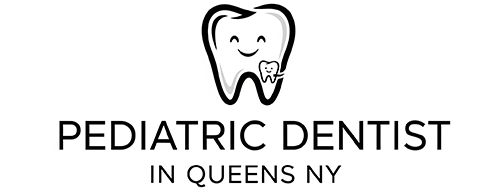Embarking on a career as a Pediatric Cardiac Sonographer offers a unique blend of challenges and rewards, merging advanced medical technology with compassionate care.
This field plays a crucial role in diagnosing and treating heart conditions in children, making it a fulfilling career for those passionate about making a difference in young lives.
Educational Requirements

Starting with the Basics
The journey to becoming a Pediatric Cardiac Sonographer begins with a solid educational foundation.
Prospective sonographers typically start with an associate or bachelor’s degree in diagnostic medical sonography or a related healthcare field.
It’s essential to choose a program accredited by a recognized body to ensure the quality of education and to facilitate later certification processes.
Specialized Training
While general sonography programs provide a broad base of knowledge, specialized training in pediatric cardiac sonography is crucial.
These programs focus on the unique aspects of children’s heart anatomy and the specific techniques required for detailed imaging.
Certifications and Licenses
Gaining Credibility through Certification
Certifications serve as a testament to your skills and knowledge in the field.
The American Registry for Diagnostic Medical Sonography (ARDMS) offers the Registered Diagnostic Cardiac Sonographer (RDCS) credential with a Pediatric Echocardiography (PE) specialty.
Alternatively, the Registered Congenital Cardiac Sonographer (RCCS) credential is offered by Cardiovascular Credentialing International (CCI).
These certifications require passing rigorous exams and meeting educational and clinical experience prerequisites.
Clinical Experience and Skills

Hands-On Learning
Practical experience is invaluable in this field.
Clinical rotations during educational programs or internships provide hands-on experience with real patients under the guidance of experienced sonographers.
Essential Skill Set
Pediatric Cardiac Sonographers need a blend of technical and soft skills:
- Communication: Clear communication with patients, families, and medical teams is crucial.
- Empathy: Working with children requires a special touch, making empathy a key skill.
- Attention to Detail: Precise imaging and interpretation are fundamental to accurate diagnoses.
- Patience: Working with young patients requires extra patience and adaptability.
- Teamwork: Collaboration with medical professionals ensures comprehensive patient care.
On-the-Job Training

Transitioning to Professional Practice
Once hired, pediatric cardiac sonographers often undergo on-the-job training.
This period, lasting a few weeks to months, involves learning specific procedures and equipment used in their healthcare setting, often including shadowing experienced colleagues.
Working Environment
Versatile Working Conditions
Pediatric cardiac sonographers find opportunities in diverse settings like hospitals, clinics, and private offices.
Their schedules may vary, with some roles requiring night, weekend, or on-call hours, particularly in hospital settings.
Career Trends and Future Outlook
Keeping Pace with Industry Trends
The field of pediatric cardiac sonography is evolving, driven by trends such as:
- Increased Demand: A rise in pediatric heart conditions is heightening the need for specialized sonographers.
- Preventative Care: Early detection and treatment of heart issues are becoming more prevalent.
- Technological Advancements: Ongoing innovations in ultrasound technology necessitate continuous learning and adaptation.
Preparing for the Role

Final Steps before Embarking on Your Career
After completing your education and gaining the necessary certifications, accumulating clinical experience is crucial.
This experience, coupled with staying abreast of technological advancements and industry trends, will prepare you for a successful career in pediatric cardiac sonography.
Conclusion
A career as a Pediatric Cardiac Sonographer is more than a job; it’s a calling. It requires a unique blend of technical skill, compassionate patient care, and continuous learning.
For those drawn to a career that makes a real difference in the lives of children and their families, pediatric cardiac sonography offers a fulfilling path.
Pursue this career with dedication and passion, and you will find yourself at the heart of pediatric healthcare, making a tangible difference every day.
FAQs about How to Become a Pediatric Cardiac Sonographer
What is Pediatric Cardiac Sonography?
Pediatric Cardiac Sonography is a specialized medical imaging technique used to diagnose and monitor heart conditions in infants and children.
What educational qualifications are required to become a Pediatric Cardiac Sonographer?
Aspiring Pediatric Cardiac Sonographers typically need an associate’s or bachelor’s degree in diagnostic medical sonography or a related field, with specialized training in pediatric echocardiography.
Do I need certification to work as a Pediatric Cardiac Sonographer?
Yes, certification such as the Registered Diagnostic Cardiac Sonographer (RDCS) with a Pediatric Echocardiography specialty is usually required.
What skills are important for a Pediatric Cardiac Sonographer?
Key skills include technical proficiency in sonography, excellent communication, empathy, attention to detail, patience, and the ability to work effectively in a team.
Where do Pediatric Cardiac Sonographers typically work?
They commonly work in hospitals, clinics, and private medical offices, and may have variable schedules including nights and weekends.

Dr. Mary G. Trice is a renowned pedodontist based in Queens, NY. With an unwavering dedication to children’s dental health. In addition to her clinical practice, Dr. Trice is the writer and manager behind the informative platform pediatricdentistinqueensny.com. Through this site, she offers valuable insights, tips, and resources for parents and guardians, aiming to bridge the gap between professional dental care and everyday oral hygiene practices at home.
